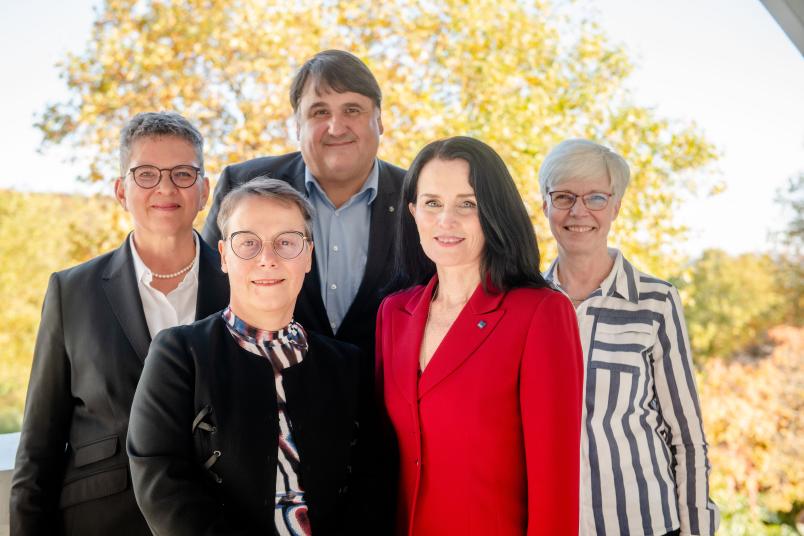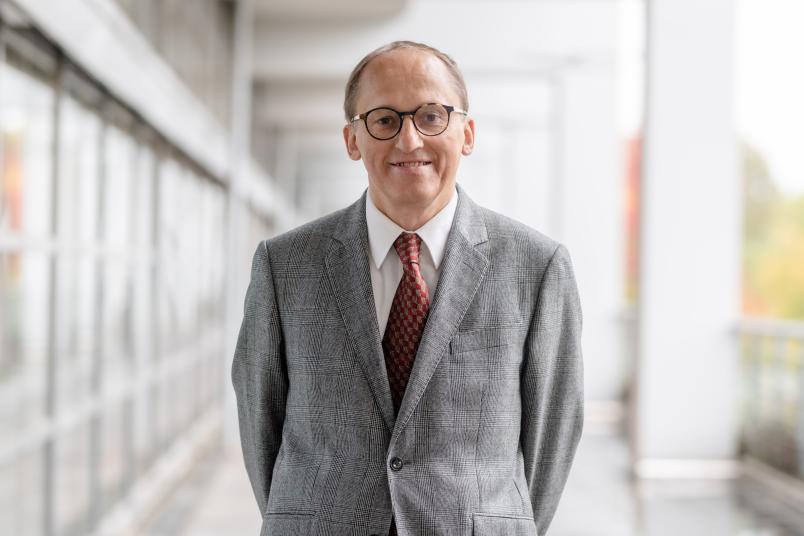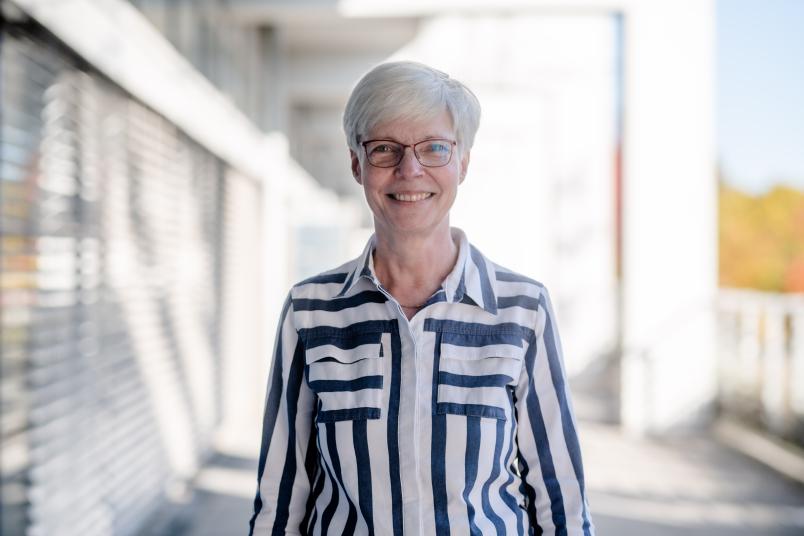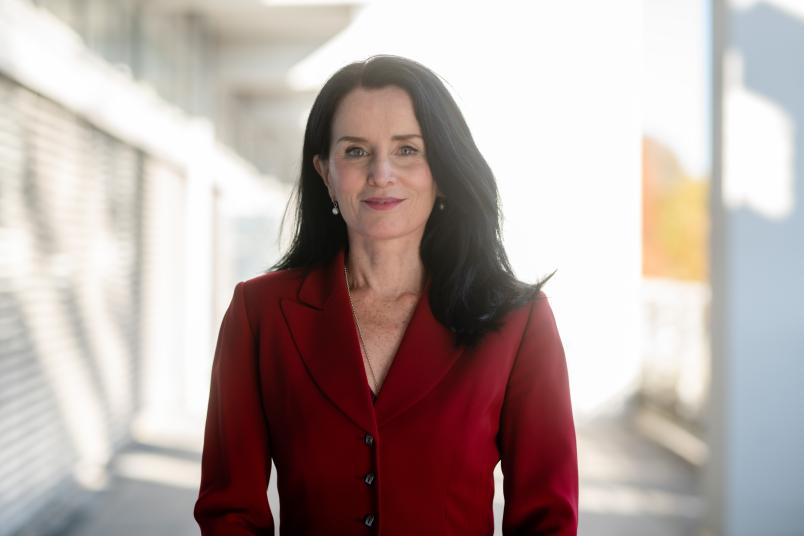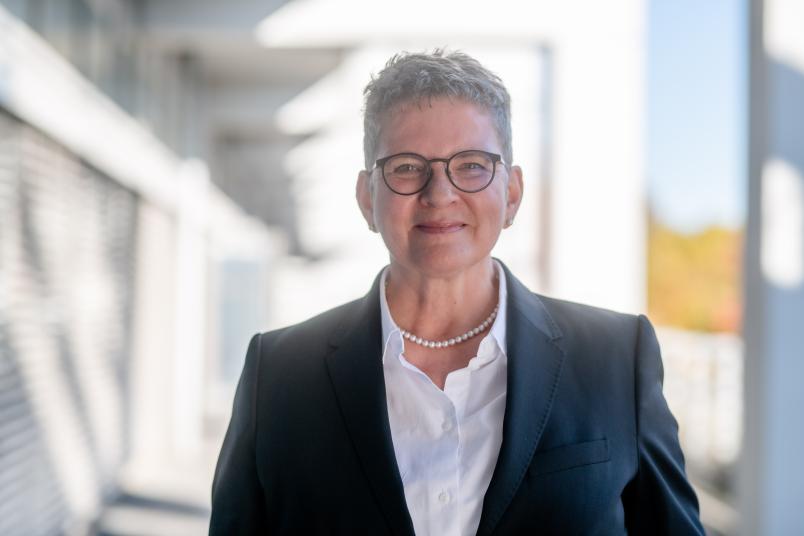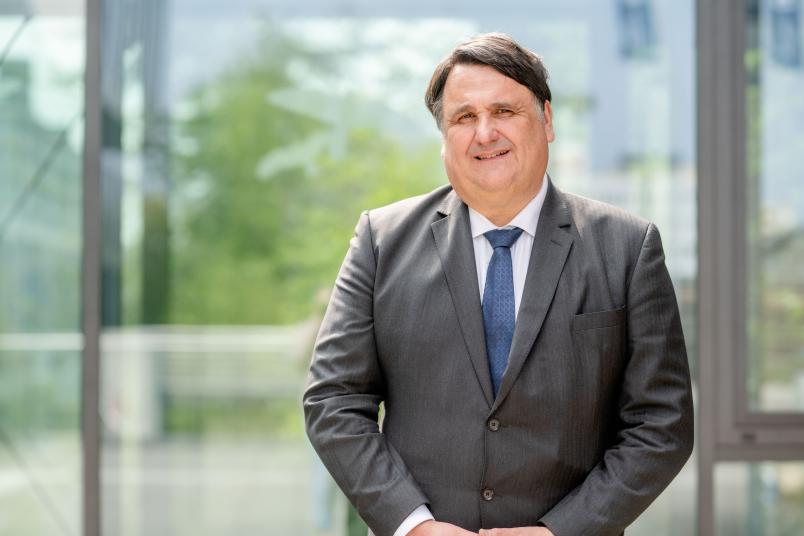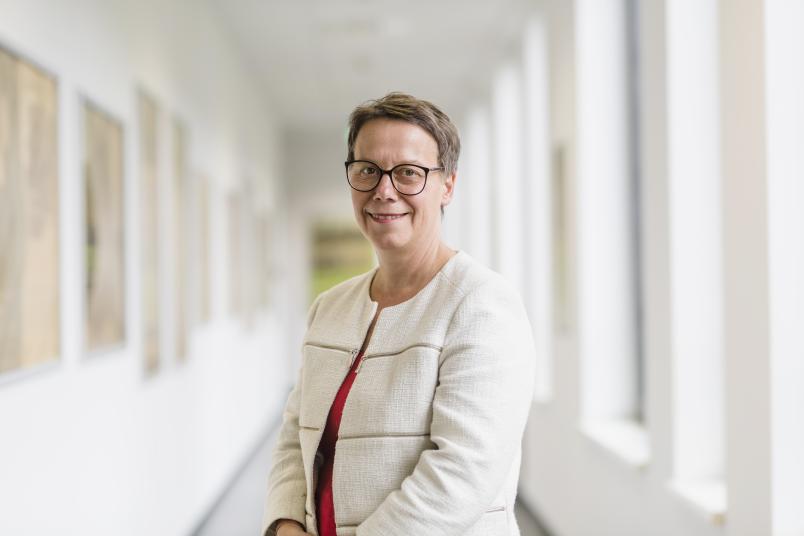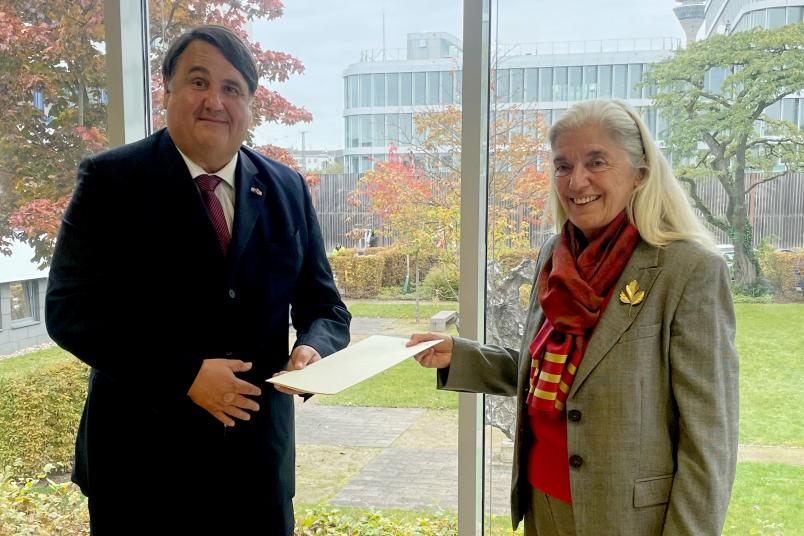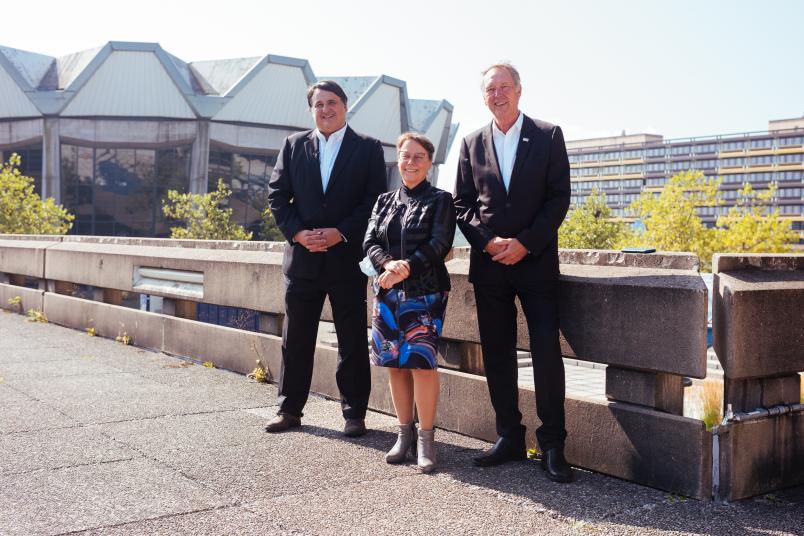Executive team
New Rectorate takes up its duties
The new Rectorate of the Ruhr University Bochum gets off to a good start with an additional vice-rectorate for diversity.
A team of four women and two men will lead the Ruhr University Bochum over the next six years. The term of office of the new Rectorate began on 1 November 2021. On 28 October, three female and one male vice-rector were elected by the University Election Assembly. The new Rector Professor Martin Paul, who moved to Bochum from the University of Maastricht, and Chancellor Christina Reinhardt are now aided by:
- Professor Kornelia Freitag as Vice-Rector for Academic Affairs
- Professor Isolde Karle as Vice-Rector for Diversity, Inclusion and Talent Development
- Professor Denise Manahan-Vaughan as Vice-Rector for Structure, Strategy and Planning
- Professor Günther Meschke as Vice-Rector for Research and Transfer
Kornelia Freitag, long-standing Vice-Rector for Academic Affairs, will continue her successful work for another six years. The scholar of american studies was a member of the previous Rectorate, headed by Professor Axel Schölmerich from 2015 to 2021.
The theologian and university pastor, Isolde Karle, has been appointed to the newly created Vice-Rectorate for Diversity, Inclusion and Talent Development. Karle was most recently the spokesperson for the professors’ representation in the Senate.
Irish neuroscientist, Denise Manahan-Vaughan, succeeds Professor Uta Hohn and shall head the Vice-Rectorate for Structure, Strategy and Planning. Manahan-Vaughan is the spokesperson of an ongoing DFG-funded Collaborative Research Centre (SFB) focussing on brain research at the Ruhr University.
Austrian-born civil engineer, Günther Meschke, succeeds Professor Andreas Ostendorf as Vice-Rector for Research. Meschke is the spokesperson of a current SFB on mechanised tunnelling.
Being successful together as a university
“I’m very much looking forward to working with this great team and congratulate everyone sincerely on their election,” says Rector Paul. “It is one of my guiding principles that we will only achieve unity at our university if we take advantage of the positive facets of our diverse community and prevent any kind of discrimination. This is the only way we can be successful as a university, and look optimistically towards the future. I have therefore decided to install a fourth Vice-Rectorate for Diversity, Inclusion and Talent Development, in addition to the three more traditional Vice-Rectorates.”
As Vice-Rector for Diversity, Inclusion and Talent Development, Isolde Karle sees the Ruhr University’s role as follows: “As the reform university in the Ruhr region, the Ruhr University is ideally suited to be a role model in the German academic landscape when it comes to diversity – and, by this means, achieve new levels of excellence.” It is a question of fairness, and is crucial for contemporary academia to open up and harness all human talent resources. By this means we can enable all members of society who experience discrimination to participate fully in academic life and academic endeavours. This strategy addressed challenges faced by women, transgender and intersex individuals, first-generation students, members of immigrant families, people who are discriminated against because of the colour of their skin, or their sexual orientation, people with disabilities, and people with different cultural and religious backgrounds.
Isolde Karle would like to systematise and further develop the existing support services in the field of diversity, with the aim of developing a central diversity strategy for the Ruhr University.
Ensuring academic success regardless of family background
The Vice-Rector for Academic Affairs, too, stresses that established Ruhr University strategies that promote fairness in diversity must be continued: “Graduate surveys and comparative studies show that we have been successful in ensuring student success regardless of family background, that the opportunities for first-generation students, female students and international students are higher with us than the German average, and that the Ruhr University scores above average in research-based learning compared to other German universities.”
Kornelia Freitag plans to build on these successes – also, when it comes to the two major goals of digitisation and internationalisation. Here, she considers the Covid-19 virus-related changes of the past semesters to be a good starting point for modernisation of teaching and learning approaches. Another focus of her next term of office shall be the European university network UNIC (the European University of Post-Industrial Cities). In line with UNIC’s goals, the general objective of learning and teaching with an international focus at the Ruhr University will be to support students in becoming active citizens, Europeans, and as such, to decisively shape our shared future.
On the way to the next round of the Excellence Strategy
As Vice-Rector for Research and Transfer, Günther Meschke defines his primary task as the preparation and support of research cluster applications to be submitted within the next call for proposals within the Excellence Strategy. With the current Clusters of Excellence, Research Departments and Research Buildings of the Ruhr University, the foundation has been laid for further profile development within the University, according to Meschke. Moreover, additional focus areas (such as materials sciences, neuroscience & cognitive science) are already in development in the current university strategy to identify potential candidates for further excellence cluster applications. “On the basis of our own strengths and our unique research profiles, I see further opportunities that can arise from cooperations within the University Alliance Ruhr,” points out Günther Meschke. “I would like to advance this process actively and dynamically – hand in hand with our partners and closely coordinated with the Vice-Rectorate for Structure, Strategy and Planning.”
A successful university thrives on the scientific creativity of its researchers, a good balance of individual excellence, and outstanding collaborative research that provides room for the development of new fields of study. These are to be strengthened through tailor-made funding programmes. In this context, Meschke sees great potential for interdisciplinary research and important contributions from the Ruhr University in the fields of sustainability and climate change.
Roadmap for the future and success-oriented path of the university
Denise Manahan-Vaughan, too, emphasises the outstanding importance of sustainability as a key issue. As Vice-Rector for Structure, Strategy and Planning, she intends to explore the viability of developing an interdisciplinary focus area on the topic of sustainability and conservation. “The Ruhr University should become the think tank, action initiator, as well as the educational & research hub in this field,” says Manahan-Vaughan. Other fields in which Ruhr University is well-equipped to take on a pioneering role are in the societal challenges faced by disease co-morbidities acquired in an ever-aging population, and those created by the digitisation of all corners of life. “My plan is to invite key researchers and thinkers from the relevant faculties and institutions to regular brain-storming sessions, in order to identify focal points and implement strategic planning.”
This will be integrated into an overarching, strategic and structural roadmap for the Ruhr University’s future, and success-oriented, path.
About Kornelia Freitag
About Isolde Karle
About Denise Manahan-Vaughan
About Günther Meschke
About Martin Paul
About Christina Reinhardt
